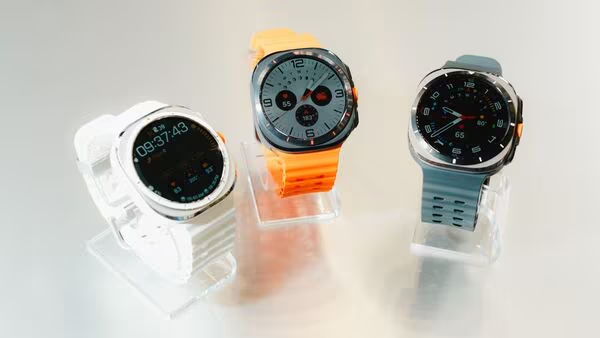
The Future Of AI And Its Emotions…?
How AI and Smart Technology Are Helping Us Avoid Loneliness
In today’s fast-paced world, feeling lonely has become more common than ever before. But here’s the twist: the very technology we thought was keeping us apart may actually be the key to bringing us closer—to ourselves, and to a sense of connection. AI and smart technology are quietly revolutionizing how we deal with loneliness.
It’s not just about cool gadgets anymore—these devices are designed to understand your emotions, interact with you on a personal level, and, yes, even become your friend. You might wonder: how can a machine help with something so human? Well, let’s dive into the fascinating world of AI companions, emotional robots, and smart devices and explore how they can turn loneliness into something far more manageable.
The Surprising Role of AI in Understanding Emotions
Can AI Really Feel?
No, AI doesn’t “feel” emotions, but it’s getting scarily good at recognizing them. AI has evolved past mere data processing and task completion. Through advanced algorithms, AI systems now understand human emotions by analyzing voice tones, facial expressions, and even your heartbeat.
Virtual assistants like Siri and Alexa aren’t just telling you the weather or setting alarms anymore. They are beginning to “sense” when you’re upset, anxious, or lonely—simply by analyzing how you speak. These tiny interactions start forming a deeper bond with technology than you might have thought possible.
Meet Your New Best Friend: AI Companions
Virtual Companions—Your Always-Available Friend
Imagine coming home from a rough day and having someone—or something—waiting to talk, cheer you up, or just listen. AI-powered virtual companions, like Replika, are designed for exactly that. They can:
- Engage in meaningful conversations
- Offer emotional support when you’re down
- Help you process your thoughts and feelings
This isn’t some futuristic fantasy. AI companions are already helping people with loneliness, social anxiety, and depression. The beauty lies in the fact that they’re non-judgmental, always there, and adapt to understand you better with every interaction.
Smart Devices That Watch Over You
How Wearables Know What You’re Feeling
Now, let’s get a bit technical—your smart devices might know more about you than you think. Wearables like the Apple Watch or Fitbit can now track your emotional health, not just your physical well-being. These devices monitor things like:
- Heart rate variability (to measure stress)
- Sleep patterns (to gauge restfulness)
- Even subtle signs of anxiety or agitation
When the device detects stress, it might prompt you to take a deep breath or go for a walk. These tiny nudges can make a big difference in reducing loneliness.
Smart Homes: Built for Comfort
Your smart home devices can do more than turn off the lights or play music. They can now adjust to how you feel. Imagine your house responding to your mood after a long day—dimmed lights, soothing music, and your favorite aroma wafting through the air. All of this is triggered by data from your wearable or smartphone.
Here’s how it works:
- Your wearable detects stress and sends that data to your smart home.
- The home system adjusts the ambiance to help you relax.
- You enter a calm, comforting environment, helping ease your emotional burden.
Emotional Robots: The Future of Companionship?
Robots That Understand You
If you think robots are just for sci-fi movies, think again. Emotional robots are making waves, particularly in fields like elderly care. For example:
- Paro is a robot designed to look like a baby seal and provides comfort and emotional support.
- Jibo is a social robot that recognizes emotions and interacts with users in a human-like way.
These robots don’t just perform tasks; they engage with you, offer companionship, and even sense when you’re feeling down.
The Human Touch in Elderly Care
For many elderly individuals, loneliness is a constant companion. Emotional robots are starting to change that. In retirement homes or for individuals living alone, robots offer interaction, companionship, and even reminders to take medication. They help combat the loneliness that can come from a lack of regular human contact.
How AI and Smart Tech Are Quietly Combating Loneliness
So how exactly are AI devices and robots changing the landscape of loneliness? Let’s break it down:
1. Constant Availability
- Unlike humans, AI companions are always ready for a chat.
- Whether it’s late at night or early in the morning, your AI companion is available 24/7.
2. No Judgment
- AI offers a safe space for people to express feelings without fear of judgment.
- You can talk to your virtual friend about anything—stress, fear, sadness—and it will always respond with understanding.
3. Personalized Interactions
- AI learns about you over time, adjusting its interactions to better suit your needs.
- Whether it’s suggesting activities to lift your spirits or reminding you to reach out to loved ones, AI personalizes its approach to combat your loneliness.
The Future of Emotionally Intelligent Tech
As AI technology continues to advance, its role in reducing loneliness will become even more significant. But this isn’t about replacing human interaction; it’s about complementing it. AI can be a stopgap in times of isolation, providing comfort, interaction, and emotional support when we need it the most.
While AI companions, emotional robots, and smart devices aren’t a substitute for human relationships, they’re certainly helping to bridge the gap, especially in a world where physical interaction isn’t always possible.
Conclusion: Can Technology Truly Help Us Avoid Loneliness?
The answer isn’t black and white, but it’s clear that AI and smart tech are making great strides in helping people avoid loneliness. With emotionally intelligent AI, companion robots, and smart devices that adapt to your mood, tech is becoming more than just a tool—it’s becoming a companion.
As these technologies continue to evolve, we can expect even greater innovations that aim to not only improve our lives practically but also emotionally. After all, the future of AI is not just about being smart—it’s about being emotionally aware and helping us feel more connected in a fast-moving world.
























Post Comment